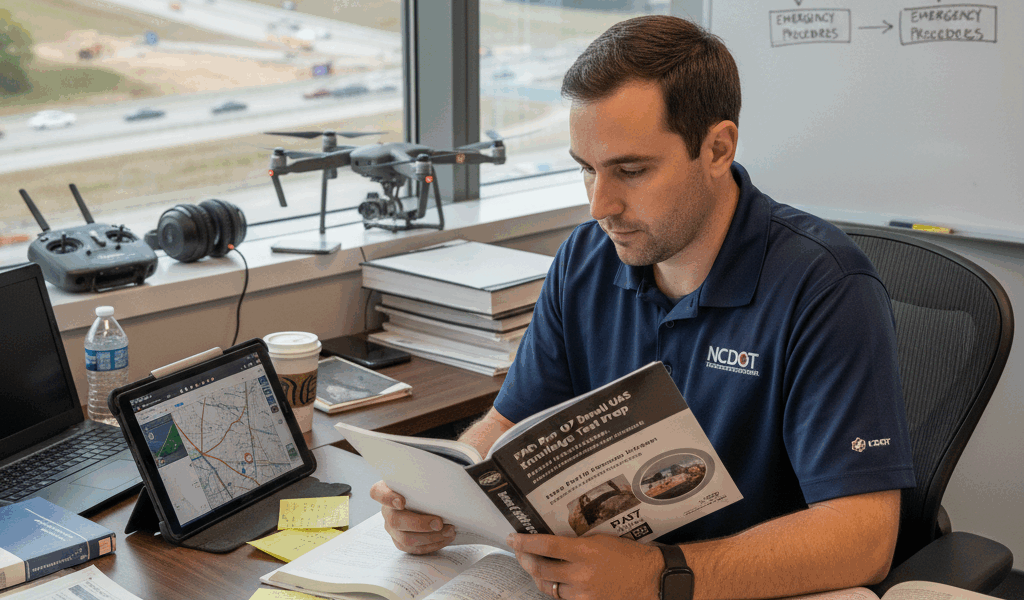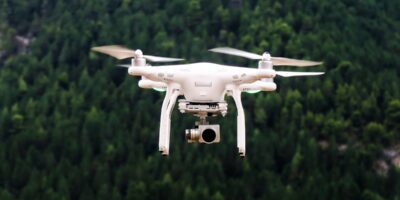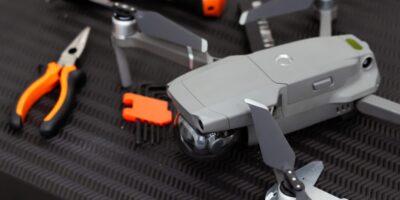Drone NCDOT UAS Knowledge Test guidance has gotten complicated with all the outdated regulations and conflicting advice flying around. Here’s what you actually need to know.
NCDOT UAS Knowledge Test: A Comprehensive Guide
The North Carolina Department of Transportation (NCDOT) offers a critical pathway for drone pilots looking to operate Unmanned Aircraft Systems (UAS) legally and safely. Understanding the NCDOT UAS Knowledge Test is essential for aspiring and experienced drone operators in North Carolina. As drones become more integrated into both commercial and recreational activities, navigating the legal and operational landscape becomes crucial.

What is the NCDOT UAS Test?
The knowledge test is a requirement set by NCDOT for anyone seeking to fly drones within the state for commercial purposes. North Carolina mandates this state-specific certification apart from the FAA’s Part 107 remote pilot certificate. This additional layer ensures that drone operators are familiar with state laws, responsibilities, and proper usage techniques. The test evaluates one’s knowledge on several topics unique to operations within North Carolina’s jurisdiction, in addition to common UAS operational guidelines.
Why is the Test Important?
The test ensures that operators are aware of both federal and state-specific regulations. Operating a drone without proper certification can result in fines and legal penalties. More critically, knowledge of local regulations minimizes the risk to public safety and privacy. Complying with these regulations demonstrates professional responsibility and enhances the credibility of drone service providers. Additionally, passing the test and obtaining state certification is often a prerequisite for certain contracts and operational permissions.
How to Prepare for the Test
Preparation involves understanding both general aviation topics and state-specific information. Prospective pilots should become familiar with FAA Part 107 requirements, including airspace classifications, weather effects on drone operations, and emergency handling procedures. Additionally, specific knowledge of North Carolina’s rules, such as no-fly zones and regional operations restrictions, is crucial.
- Review NCDOT’s official materials available online.
- Consider enrolling in a drone certification course that covers both FAA and NCDOT regulations.
- Join study groups or forums where pilots discuss test content and experiences.
- Take practice exams to identify strengths and weaknesses.
Consistent study and practical flight practice will prepare candidates effectively. Staying updated with the latest changes in regulations or guidelines is also beneficial, as drone technology and its regulatory environment evolve rapidly.
Test Content Overview
The NCDOT UAS Knowledge Test covers a variety of topics. Notably, it includes regulations, safety, privacy issues, and state-specific rules. Each section is designed to ensure that candidates can safely integrate UAS operations within the existing airspace system of North Carolina. The primary focus remains compliance, accountability, and safe operation.
- North Carolina-specific airspace rules and restrictions.
- Privacy considerations and data protection obligations.
- Operational safety procedures and emergency protocols.
- Basic principles of aerodynamics and aircraft performance.
- Weather-related guidelines that impact drone flying.
These topics ensure that operators have a holistic understanding of operating drones in a manner that is both safe and compliant with local laws.
Taking the Test
The test is available at various locations approved by the NCDOT. Scheduling the exam involves selecting a suitable testing center and booking a slot. Many testing centers allow online registration for convenience. On the day of the test, candidates should arrive with proper identification and any required documents as specified by the testing center. The exam format typically includes multiple-choice questions that assess theoretical and practical knowledge.
A fee is required to take the NCDOT UAS Knowledge Test. Payment may vary by testing center, and it’s advisable to check the specific costs and accepted payment methods in advance. Upon passing, candidates receive their certificate, which legalizes them for commercial UAS operations within the state.
Post-test Obligations
Passing the knowledge test is just one part of the responsibility. Certified drone operators must maintain safe operational practices. Regular updates and recertifications may be needed as per NCDOT guidelines. Operators should also log their flight details, maintain equipment integrity, and report any incidents according to state regulations. Staying informed about any changes in North Carolina drone law is essential for ongoing compliance.
Real-World Applications of Certification
Certification opens doors to various opportunities. Commercial drone pilots are in demand across several industries. They support sectors such as real estate, agriculture, disaster management, and infrastructure inspection. The certification not only validates a pilot’s skills but also helps in securing trust and contracts from clients.
Operations like mapping and surveying that used to be costly and time-consuming are now more efficient with drones. Certified operators ensure that these missions are handled professionally, meeting both client and regulatory requirements.
Future of Drones in North Carolina
The role of drones continues to expand, with futuristic applications emerging rapidly. The regulatory environment is adapting to accommodate innovations like drone deliveries and urban air mobility. As drone technology evolves, the NCDOT likely will expand its guidelines to address these advancements while maintaining safety and local airspace integrity.
Drones are expected to become a common sight in various sectors, extending beyond traditional uses. Operators well-versed in both current regulations and emerging technologies will have a competitive advantage in the drone industry boom.



